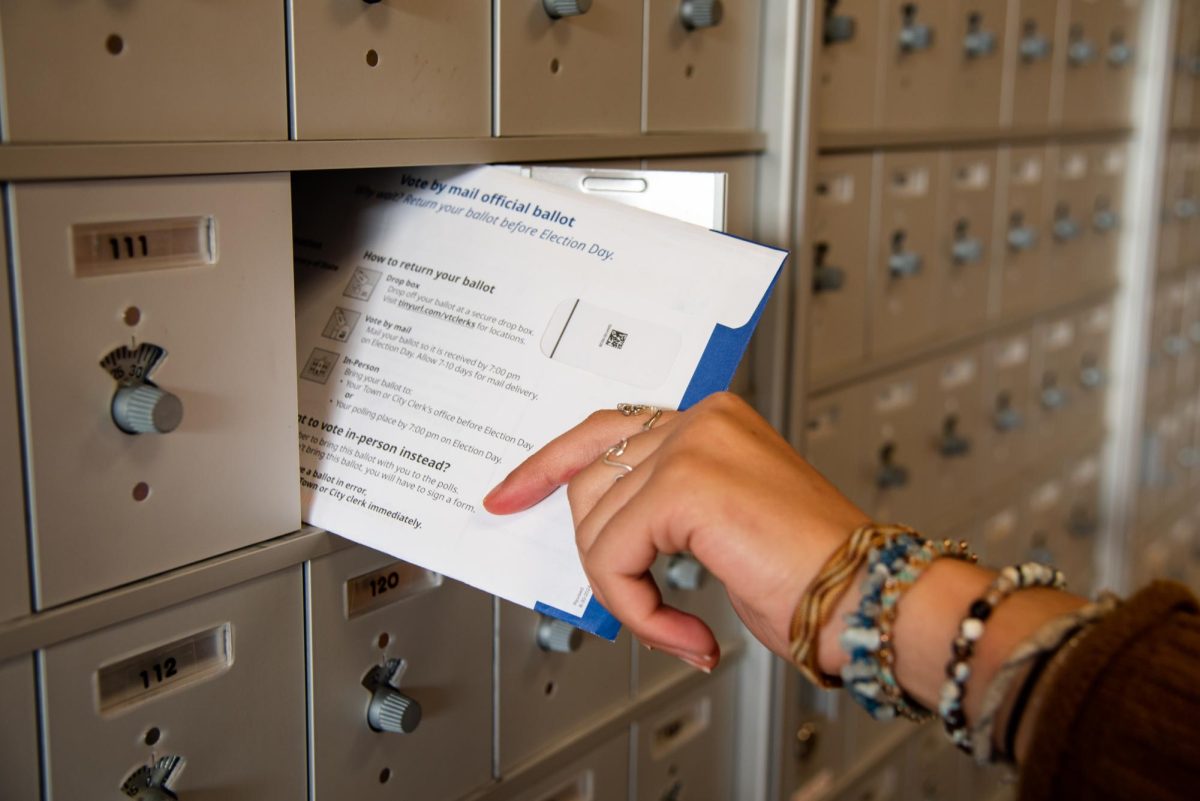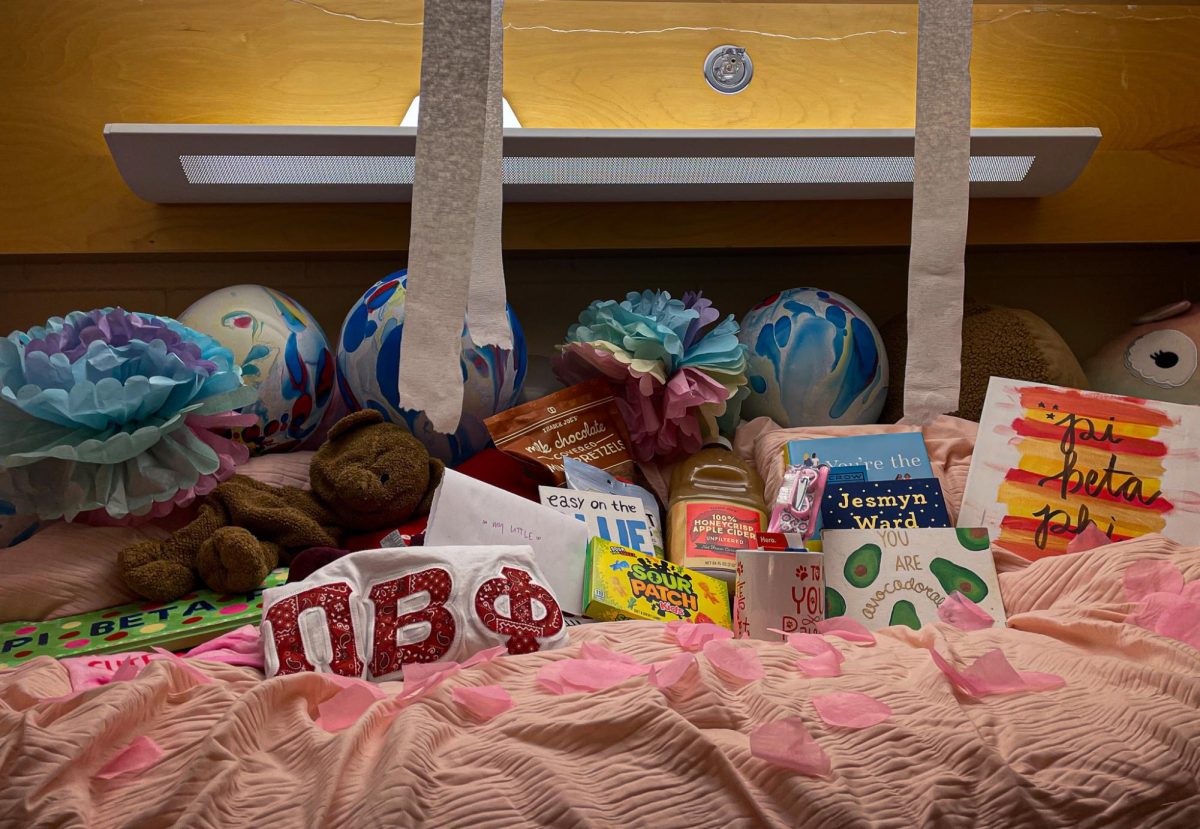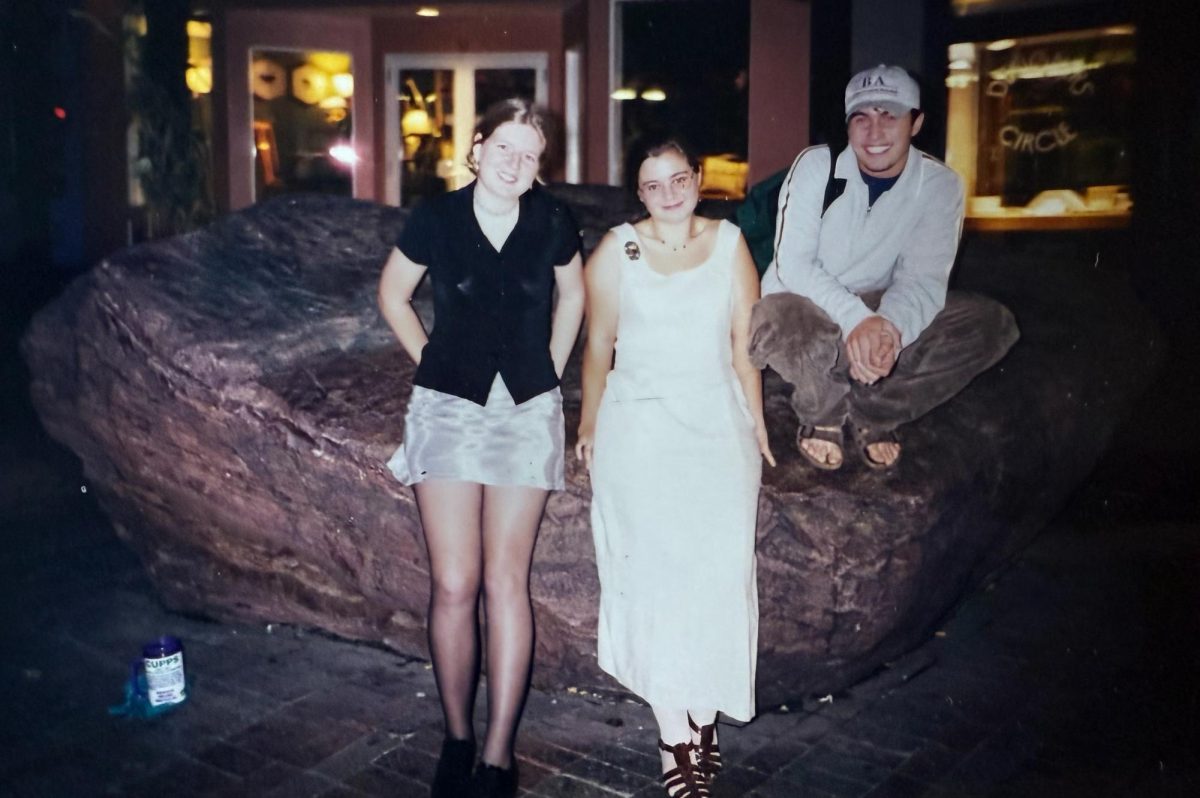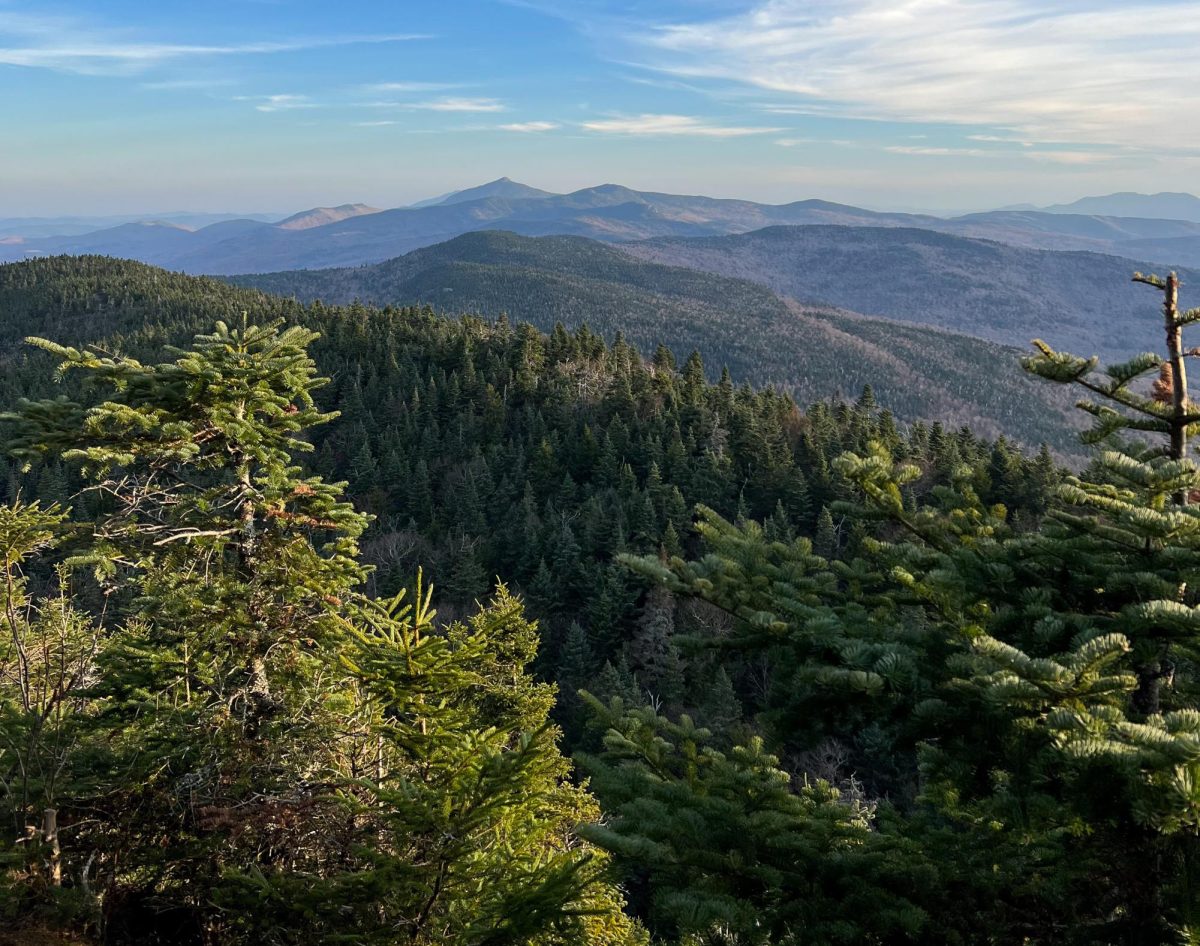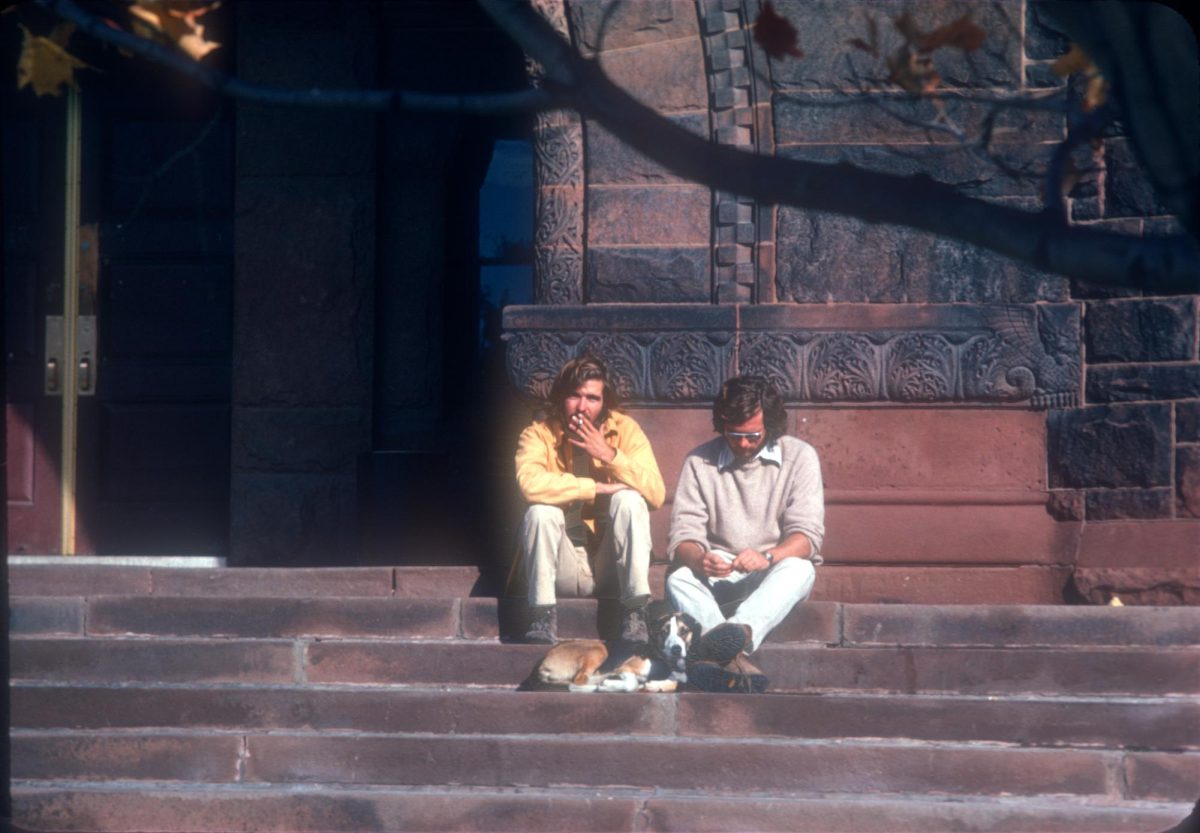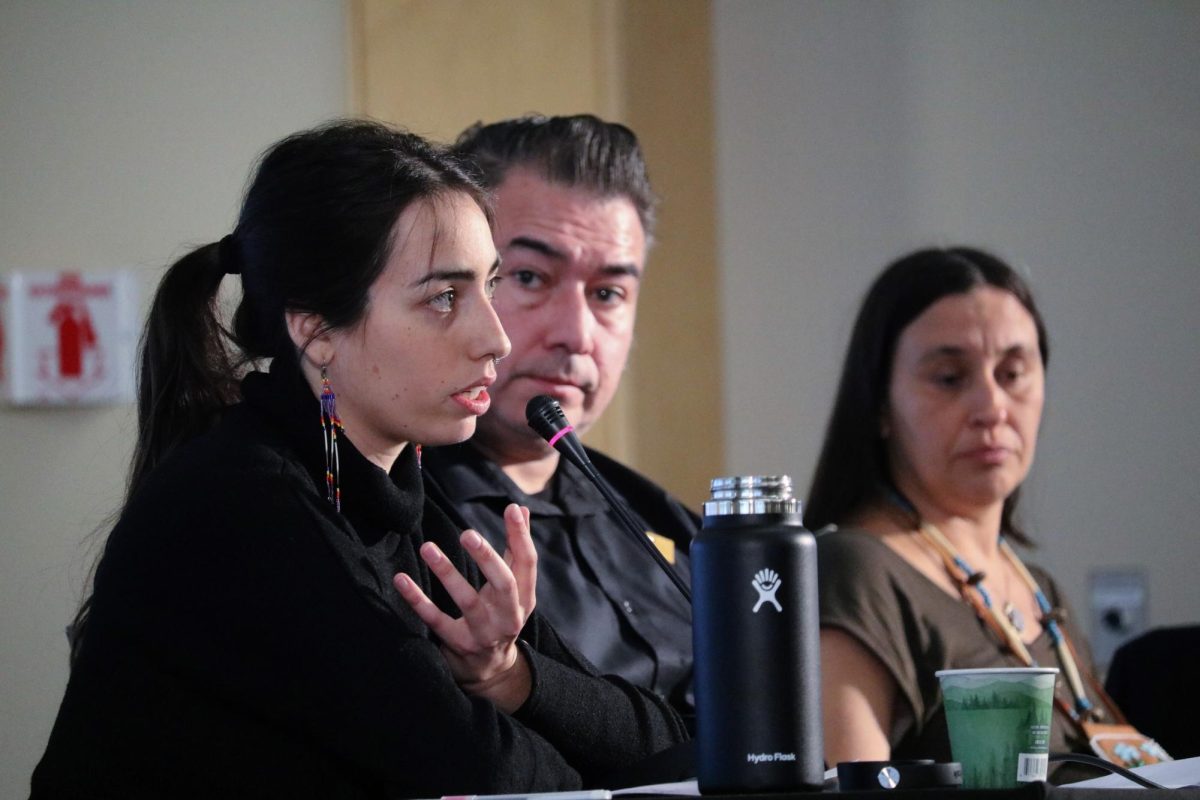This November, students at UVM will get the chance to cast their vote in this year’s election. For many, it will be their first opportunity to vote in a presidential election.
“This is the first election I can vote in and I would love to participate,” said first-year Audrey Ridenour, who plans on voting absentee in Pennsylvania. “It’s important that the younger generation of voters have a voice in this election.”
This fall, UVM Civic Engagement has been working to encourage student voting. This has included partnering with online platform TurboVote to help students register to vote, receive voting reminders and learn about where and how to vote, said Coordinator for Civic Engagement Rinzin Sonam.
UVM has a history of high voter turnout with 92.3% of students voting in the 2020 presidential election, said Aimee Alexander, assistant director for civic engagement and Student Life.
UVM’s student voter turnout was much higher than the national student voting rate of 66% in 2020, according to a 2020 study from Tufts University.
“This campus has very high registration rates and participation,” Sonam said. “So I think in general, it’s good to help students figure out a plan and be registered […] We just want to play the part of providing them with the resources they need.”
In the U.S., presidential elections are decided based on electoral votes. Each state is awarded votes based on how many members are in its Congressional delegation. A candidate must receive a majority of 270 electoral votes to win the presidency, according to the National Archives.
Due to its small population, Vermont receives only three electoral votes.
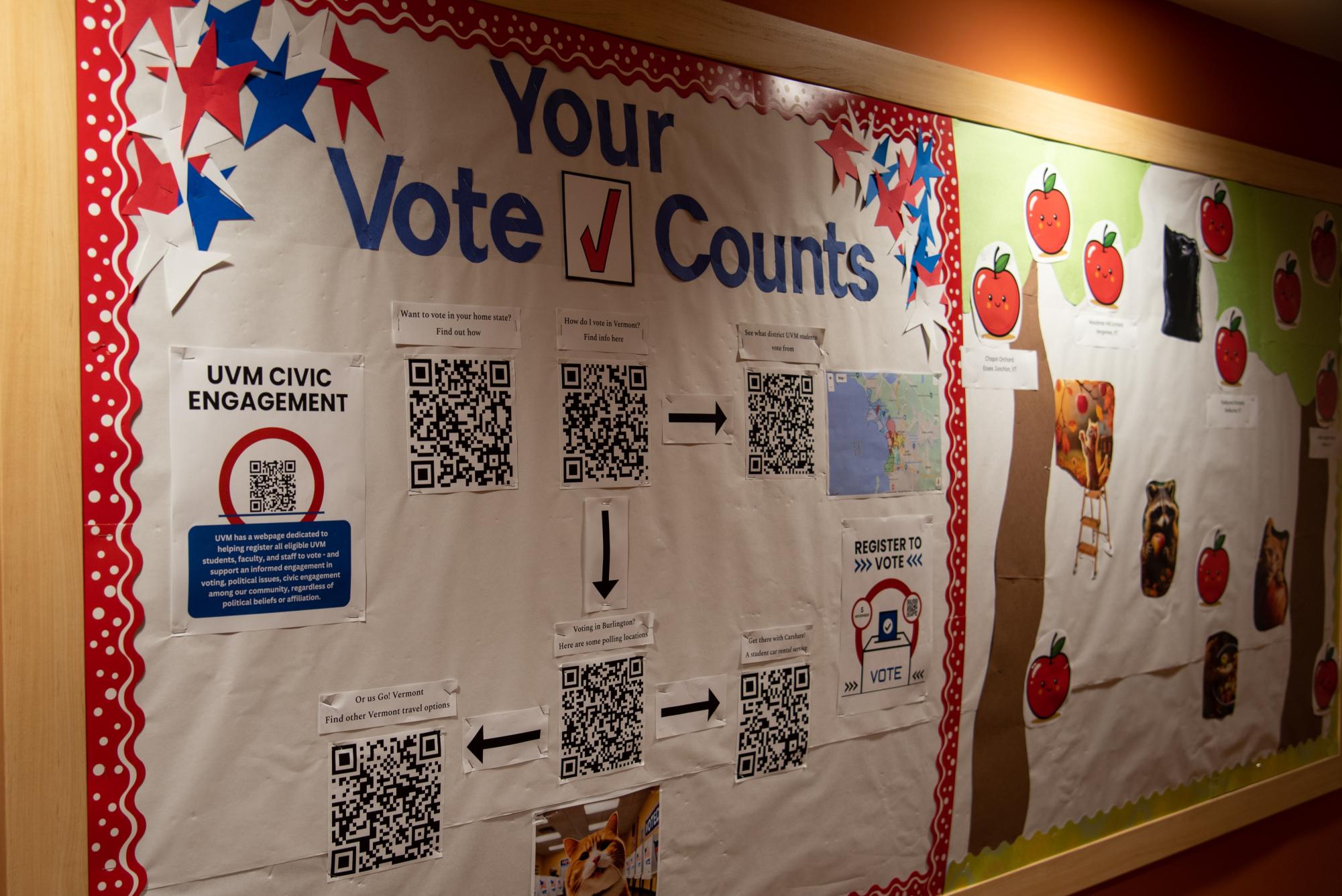
All states, except for Maine and Nebraska, have “winner-take-all” systems for presidential elections. For Vermont, this means that a candidate with a majority of votes gets all three of Vermont’s electoral votes.
As Vermont is a solidly “blue” state, an individual’s vote in Vermont is unlikely to have an effect on the presidential race, said Jonathan “Doc” Bradley, professor of political science at UVM.
People have the right to vote in either the state they go to school in and the one that they’re from, said Henley Lynch, vice president of the Political Science Club.
“I vote in Indiana because that’s where I went to high school and that’s where I have residency,” Lynch said. “Also because my vote is not the same as that of the majority of the state. So I think that it has more of an effect than in Vermont.”
Over three quarters of UVM’s undergraduate population are from out of state, 9,187 of 11,742 students, according to UVM Office of Institutional Research and Assessment.
While the number may seem insignificant in a national election, swing states like Pennsylvania, Georgia, North Carolina and Arizona will likely have races decided by less than 20,000 votes, Bradley said.“Pennsylvania is probably going to be very close, maybe 20,000 votes either way,” Bradley said. “You think ‘that’s still a lot,’ but if all the students from Pennsylvania were to vote absentee, that is more than 20,000. That could seriously affect an election.”
Seven swing states—Arizona, Georgia, Michigan, Nevada, North Carolina, Pennsylvania and Wisconsin—are likely to decide who ultimately wins the presidency in November, according to an Oct. 2 article from U.S. News.
However, even votes in non-swing states have an impact. How close state elections are provides valuable feedback to the Democrat and Republican parties that can influence their pick of future candidates, Bradley said.
In addition to the presidential race, many states will have congressional and local races down the ballot this election.
“The most important elections are the elections that most people ignore, which are your local elections,” Bradley said. “Local elections really do matter in creating that [change] because it’s a bottom-up fixing of these problems.”
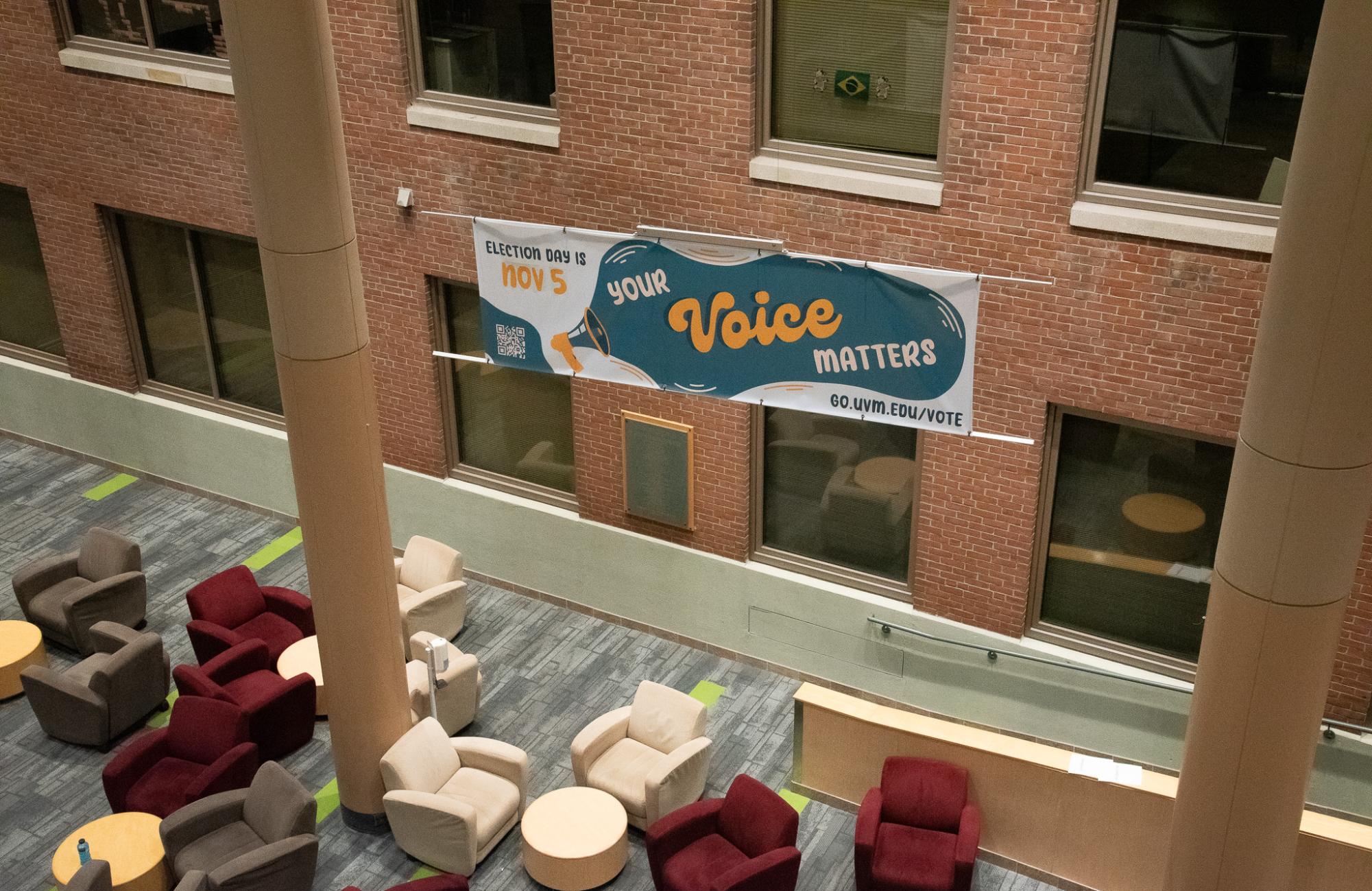
UVM clubs like Students Demand Action, a group committed to ending gun violence in the U.S., are using local elections to encourage policy change, said junior Astrid Foster, treasurer of UVM’s Students Demand Action.
Leading up to Nov. 5, Students Demand Action has been working to mobilize voters in Vermont toss-up districts by phone banking. The organization has also released endorsements for both local and federal candidates, including the Harris-Waltz ticket, Foster said.
“Youth have incredibly low voter turnout historically, and we really want to change that because this is the world that we’re inheriting,” Foster said. “We need to really make sure that we’re using all that is given to us to express what we want.”
However, for busy college students, learning about candidates’ policies or the intricacies of issues can be a time-consuming process.
“I want to vote because I finally can and it could be cool to participate in it, but I feel like I haven’t educated myself enough to vote responsibly,” said junior Brooke Brescia.
The Political Science Club, a nonpartisan group, is continuing to host their series “Perspectives on Politics,” where local political figures talk to students about their policies to inform students about local politics, said Lynch.
The political science department has also hosted events to inform students leading up to the election. Their “Election 2024: What’s At Stake” panel hosted four faculty members from the department who discussed key issues in the 2024 Presidential election.
Out-of-state students can both register to vote and request an absentee ballot online if they choose to vote in their home states.
Students with residency in Vermont can vote by absentee, vote early in-person in their town or city clerk’s office or vote in-person on Nov. 5 at their specified polling location.
“Students are a very large voter demographic, and we all come from very different places,” Lynch said. “I think just as a university, we have an obligation to make sure students can use their voice in whatever way they want to.”


